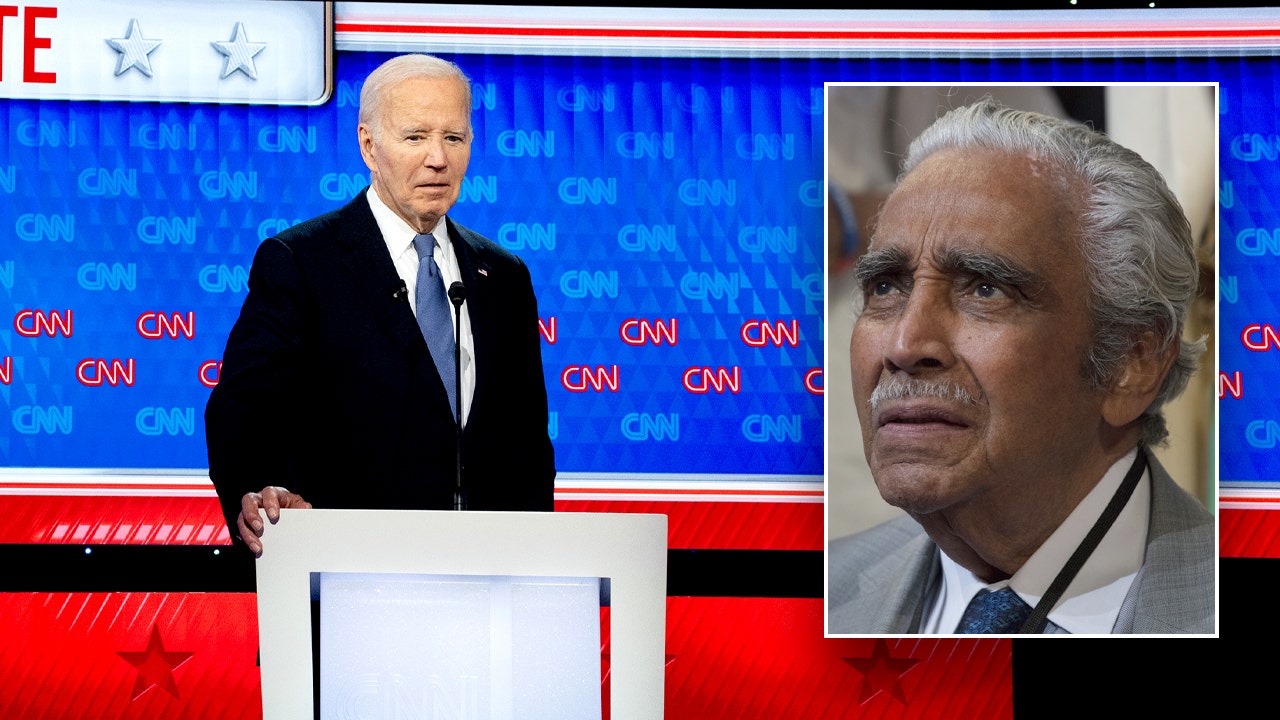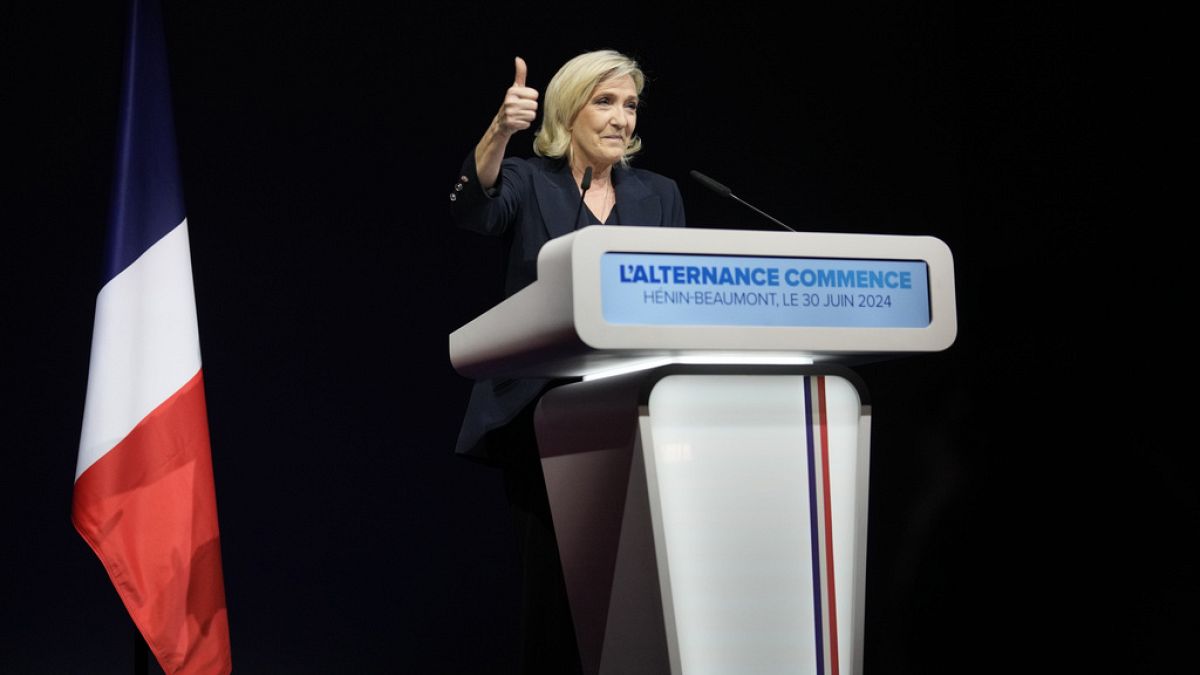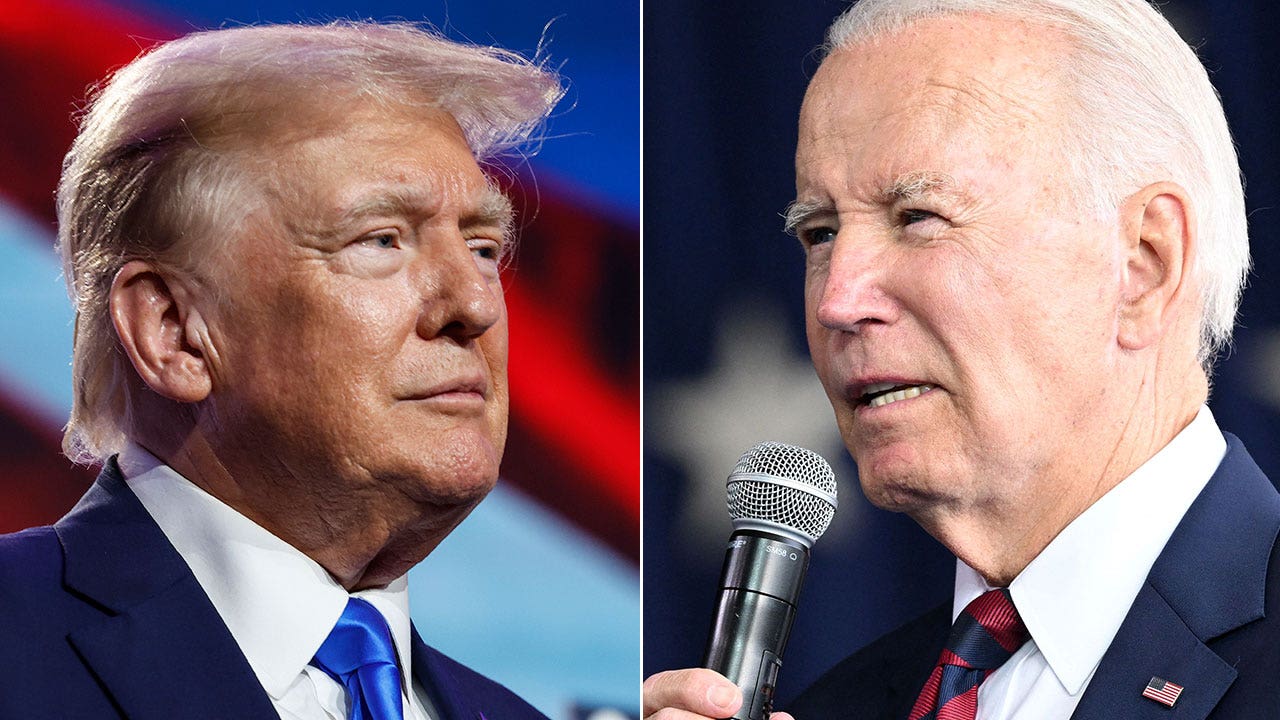The French far-right leader Marine Le Pen and party chief Jordan Bardella wore broad smiles as they pitched their “ticket” to voters with a view to taking power in 2027 — with her as president and him as prime minister.
Using the original English word, the official unveiling of their duo in January was a new move in the context of French politics, where the president is elected directly and the post holds powerful institutional functions. Prime ministers are named afterwards to run the government and often sacrificed when presidents need to reboot in a crisis.
The announcement in a joint interview underlined how Le Pen had anointed the 28-year-old Bardella as the face of the new, professionalised Rassemblement National (RN) that she had spent more than a decade building. She was betting that her chances of succeeding her longtime rival, the centrist President Emmanuel Macron, were stronger with Bardella at her side.
Le Pen last week told the Financial Times that she came up with the “ticket” as part of a strategy to prepare the French public to choose the RN. “The more people know us and the more they know precisely what we will do, the more they will be able to turn their backs on the caricatures and fears about us that are stirred up by our adversaries,” she said.
But now the strength of the bond between Le Pen, aged 55, and her much younger lieutenant could be tested in the political turmoil touched off by Macron’s decision to call snap elections for the National Assembly. The president made the shock move after his centrist alliance was trounced in this month’s European elections where the RN list led by Bardella won 31 per cent of the vote to his 15 per cent.
In the first leg of the two-round legislative election on Sunday, the anti-immigration, populist RN appeared ascendant once again, setting up the possibility that Bardella could be propelled to the premiership in a matter of weeks. Projections from the pollster Ipsos placed the RN on 34 per cent, putting it on track to win the most seats in parliament and potentially even an outright majority in the final round of voting on July 7.
The RN has proved adept at appealing to people worried about the cost of living amid inflation, and has tapped into discontent about declining public services while exploiting anger at a lofty president Macron.
Despite the duo’s polished sales pitch, Le Pen and Bardella still have a radical agenda that would roil French society. It includes policies such as slashing immigration, ending birthright citizenship and creating a “national preference” for French citizens on social housing and welfare programmes.
In the Elysée palace, officials have long suggested in private that the pair will turn on each other in a quest for power. They seized on recent polling showing the protégé Bardella had eclipsed the mentor Le Pen in popularity and that more people would greet his accession to the presidency favourably than hers.
Asked if he could push aside Le Pen to run himself in 2027, Bardella told the FT: “No, no, no. I do not have that ambition.” He has a large portrait of himself and Le Pen hanging in his office and still uses the formal vous to address her, although she has told him he does not have to.
Le Pen added: “The idea that I would be upset that he is more popular in polls than me, on the contrary, I’m delighted . . . I will need a popular prime minister to govern France.”
In 2011, Le Pen officially took over the movement her father Jean-Marie helped create almost 40 years earlier. But before that, she had come to believe that the party needed to distance itself from the baggage of its founders, including her father and the journalist Pierre Bousquet, who was in the French division of the Waffen-SS during the second world war.
With historical roots in fascism, the Front National (FN), as the party was originally called, remained on the fringes of French politics because of Jean-Marie. He was convicted in 1990 of hate speech for once likening the Nazi gas chambers to a “detail of history”.
France at the time was still reckoning with the historical legacy of Vichy collaboration with Nazi Germany, making the FN radioactive for most voters. At the age of eight, when Le Pen was growing up as the youngest of three daughters in Paris, a large bomb targeting her father destroyed the family home. No one was hurt, and the crime never solved.
After training as a lawyer, Le Pen practised for around six years before entering the family business: politics. In 2002, Jean-Marie surprisingly made the presidential run off, setting off mass anti-FN protests which led in turn to a crushing victory for the incumbent, Jacques Chirac.
It was then that the daughter set out to change things, according to Louis Aliot, the mayor of Perpignan, who broke with Jean-Marie to side with his daughter, with whom he was formerly in a relationship. “We were both from a younger generation, so we’re not obsessed with the past,” he said. “After the protests against us, we decided that we had to change the FN from the inside.”
The project to “detoxify” the party became Le Pen’s mission. She changed its name in 2018, a classic marketing strategy to make voters forget the past. She had already ousted her father from the party in 2015, and expunged other radical elements, although critics say traces of its antisemitic, racist past remain. Gradually she shifted the RN’s platform to emphasise cost of living issues and play off the supposed contempt that Parisian elites have for rural areas.
In Macron, Le Pen had her perfect opponent — a former banker, a product of top French educational institutions and a technocrat who wanted to liberalise the economy and boost the EU.
But in the 2017 presidential election, she lost to him by a wide margin, wounded by a weak debate performance. That defeat propelled her and the RN leadership into a bout of soul-searching. She and her closest cadres sought to rebuild both by boosting her policy expertise on issues from defence to the economy, and training up a new crop of politicians formed at the local level. They came to be known as “generation Marine”.
Among them was Bardella, who says he first saw Le Pen on stage at a rally when he was 16 years old. She so impressed him that he joined her party the next day, going on to promote it in his hometown of Saint-Denis, a working-class and immigrant area north of Paris where he lived with his mother.
In 2015, he created a group in Saint-Denis called “Banlieues Patriotes” that sought to woo residents of the diverse and disaffected neighbourhoods on the Paris periphery. According to French media, he once handed out flyers that said “Muslims, maybe, but French first”.
His activities put him on Le Pen’s radar. They met at a gathering of young RN activists convened by the party leader at a pizzeria in Nanterre after a local election. She sat next to him and by the end of lunch had asked him to work on her 2017 campaign. “I was a bit intimidated by her given my young age,” he said, but agreed to the job.
“He seemed a disciplined and articulate young man, who I found very French, with the way he dressed and an elegance,” Le Pen said.
Le Pen and her team helped craft a narrative around Bardella, emphasising his childhood in social housing with a divorced mother who struggled to make ends meet. He has said his views were shaped by seeing the ravages of drug dealing and crime in his local area and riots that erupted in 2005 after two adolescents died during a police chase.
The actual story was slightly different. Bardella’s father was a small-business owner who sent him to private Catholic schools and gave him a more bourgeois upbringing, according to a biography by Pierre-Stéphane Fort. He did not complete his studies in geography at university and has not held a private-sector job.
Pascal Humeau, a media trainer who worked with Bardella for four years, said the politician was a “pure product of marketing” who followed Le Pen’s line. Humeau helped him adopt a more confident speaking style and start every media appearance with direct eye contact and a strong bonjour. “Who is Jordan Bardella really? We don’t know,” he said.
When Le Pen passed over more senior cadres to put the then 23-year-old at the top of the RN list for European elections in 2019, some warned her it was too risky. He came in first, one point ahead of Macron’s list.
With Bardella, the RN has won parts of the electorate previously wary of Le Pen, including women, white-collar workers with diplomas and the business community. The biggest influencer in French politics, he has a large TikTok following that has helped attract young voters. He has also focused more on identity politics than Le Pen, declaring recently that there was a “cultural battle” to be fought against Islamism in France.
Will the “ticket” prevail or will it unravel as opponents predict?
“The ticket is very solid,” Bardella told the FT wryly. “It is printed on thick paper that will not tear.”
leila.abboud@ft.com
Additional reporting by Adrienne Klasa

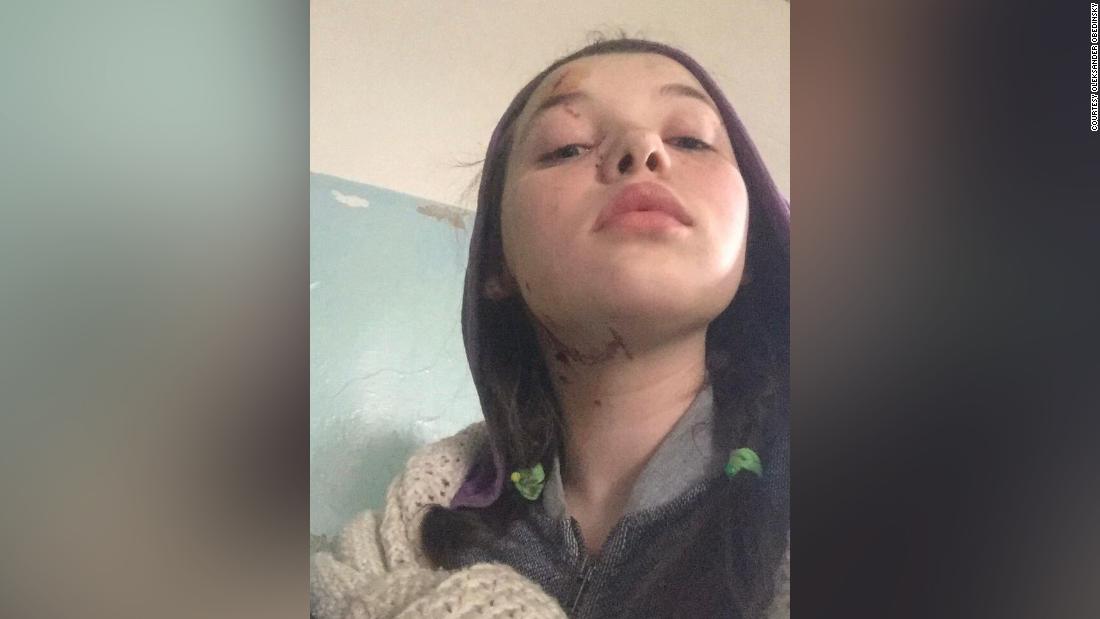











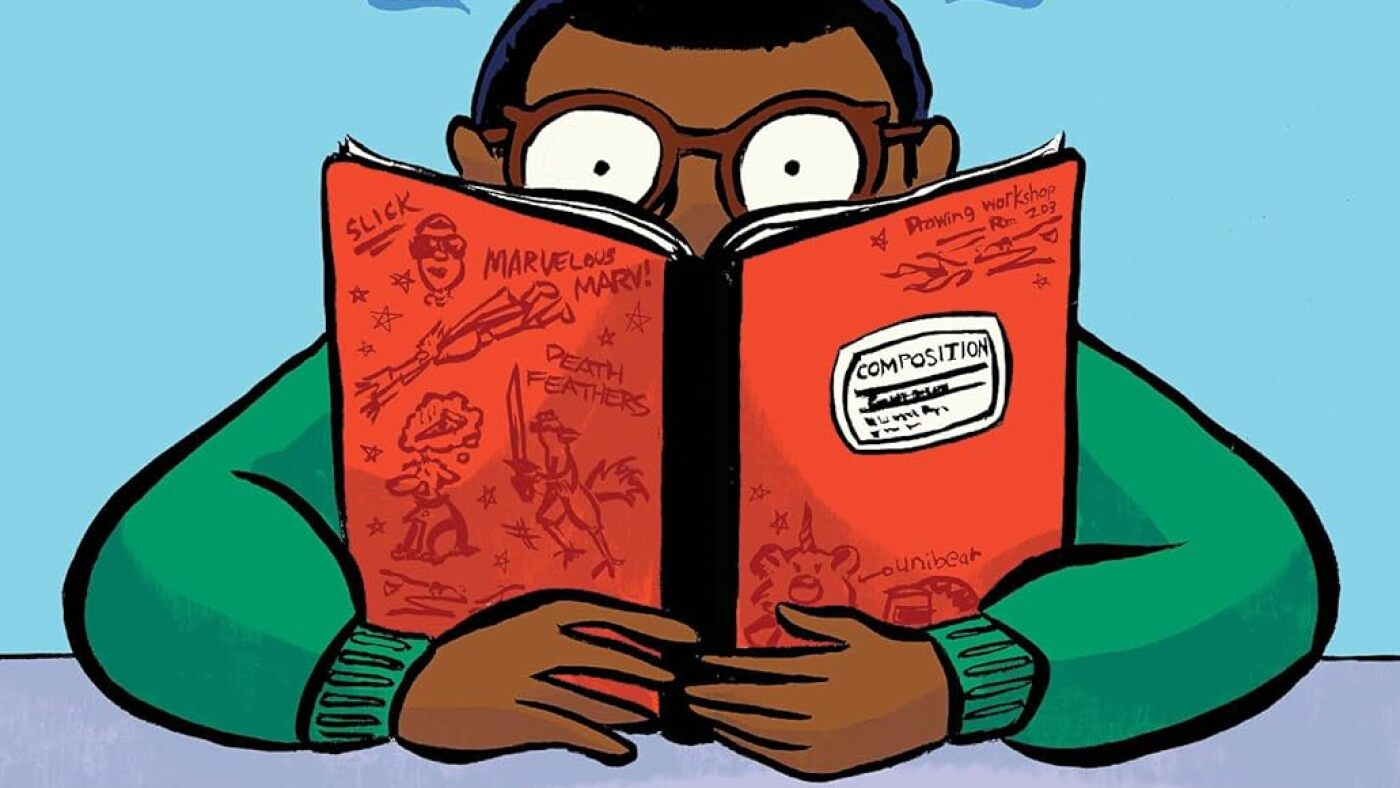
/cdn.vox-cdn.com/uploads/chorus_asset/file/25512791/Screenshot_2024_06_30_at_4.37.29_PM.png)





